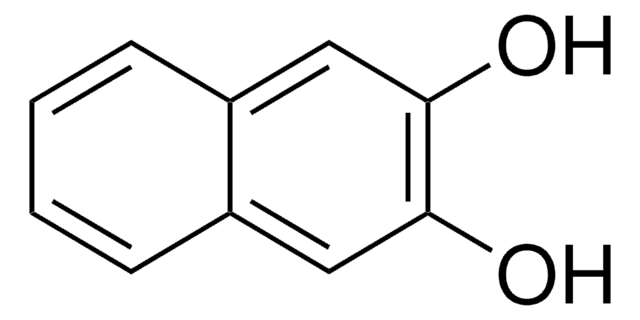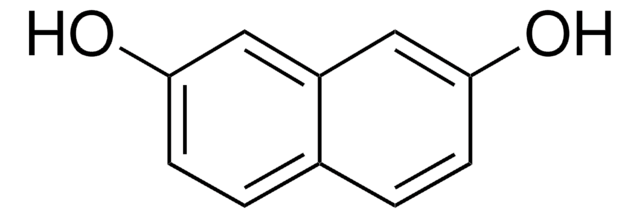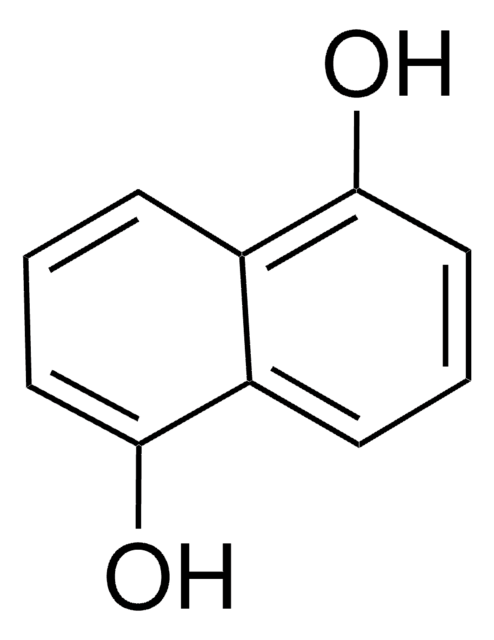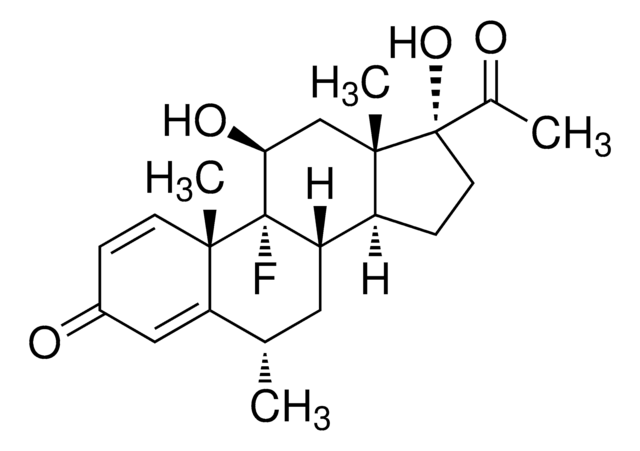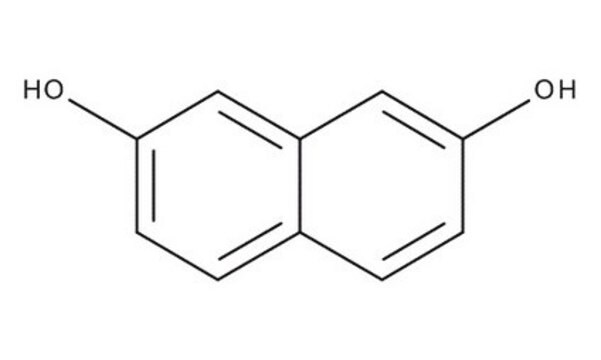N6250
1,3-Dihydroxynaphthalin
≥99% purity , crystalline
Synonym(e):
1,3-Naphthalindiol, Naphthoresorcin
About This Item
Empfohlene Produkte
product name
1,3-Dihydroxynaphthalin, ≥99%, crystalline
Assay
≥99%
Form
crystalline
Farbe
white to tan
mp (Schmelzpunkt)
123-125 °C (lit.)
124-125 °C
Löslichkeit
ethanol: 50 mg/mL
λmax
288 nm (298 nm (ethanol))
Anwendung(en)
diagnostic assay manufacturing
hematology
histology
Lagertemp.
room temp
SMILES String
Oc1cc(O)c2ccccc2c1
InChI
1S/C10H8O2/c11-8-5-7-3-1-2-4-9(7)10(12)6-8/h1-6,11-12H
InChIKey
XOOMNEFVDUTJPP-UHFFFAOYSA-N
Suchen Sie nach ähnlichen Produkten? Aufrufen Leitfaden zum Produktvergleich
Verwandte Kategorien
Allgemeine Beschreibung
Anwendung
Angaben zur Herstellung
Signalwort
Warning
H-Sätze
Gefahreneinstufungen
Muta. 2
Lagerklassenschlüssel
11 - Combustible Solids
WGK
WGK 3
Flammpunkt (°F)
Not applicable
Flammpunkt (°C)
Not applicable
Persönliche Schutzausrüstung
dust mask type N95 (US), Eyeshields, Gloves
Analysenzertifikate (COA)
Suchen Sie nach Analysenzertifikate (COA), indem Sie die Lot-/Chargennummer des Produkts eingeben. Lot- und Chargennummern sind auf dem Produktetikett hinter den Wörtern ‘Lot’ oder ‘Batch’ (Lot oder Charge) zu finden.
Besitzen Sie dieses Produkt bereits?
In der Dokumentenbibliothek finden Sie die Dokumentation zu den Produkten, die Sie kürzlich erworben haben.
Kunden haben sich ebenfalls angesehen
Unser Team von Wissenschaftlern verfügt über Erfahrung in allen Forschungsbereichen einschließlich Life Science, Materialwissenschaften, chemischer Synthese, Chromatographie, Analytik und vielen mehr..
Setzen Sie sich mit dem technischen Dienst in Verbindung.


